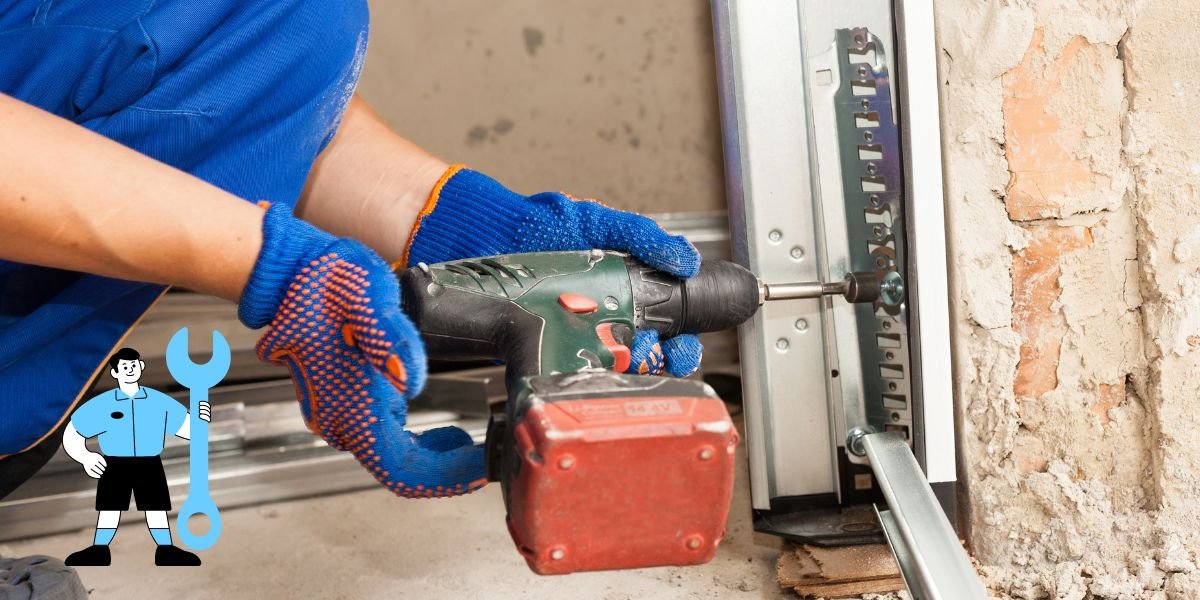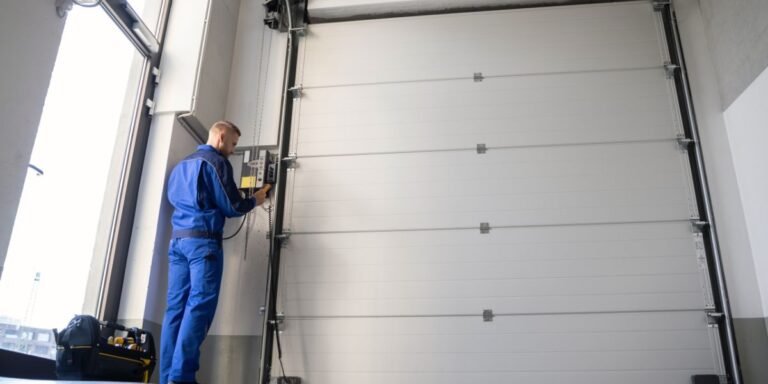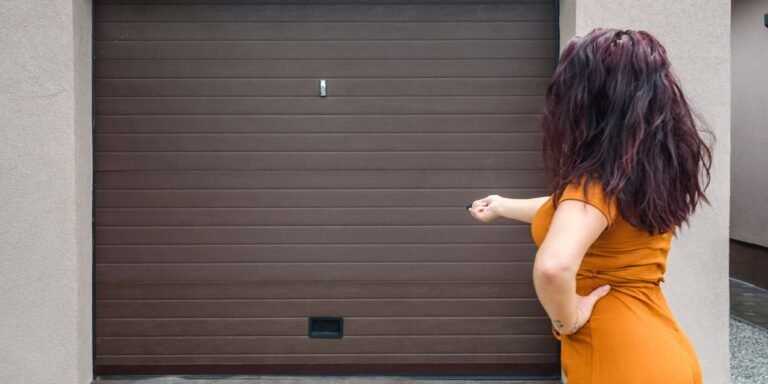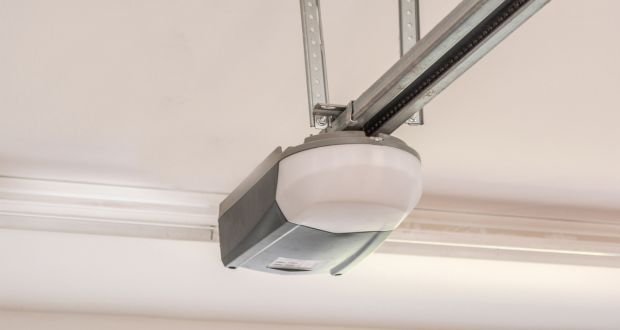How to Fix Cold Weather Garage Door Problems ?
Cold weather can affect a garage door opener by causing the metal components to contract, which can lead to the motor straining and potentially malfunctioning. This can result in difficulty opening and closing the garage door.
As the temperature drops, the metal components of a garage door opener may contract, causing strain on the motor. This strain can lead to functionality issues, making it harder to open and close the garage door. To understand how cold weather affects a garage door opener, it’s essential to consider the impact of low temperatures on the mechanical and electrical components.
This article will delve into the potential problems caused by cold weather, as well as offer tips on how to maintain and protect your garage door opener in challenging weather conditions.
Why Does My Garage Door Opener Not Work When It’s Cold?
Cold weather can affect the functionality of your garage door opener. This is because extreme temperatures can cause contraction and stiffening of the opener’s components, resulting in poor performance and malfunctioning.
When temperatures drop, it’s not uncommon for homeowners to experience issues with their garage door opener. The chilly weather can affect the performance of the opener, leaving you frustrated and wondering why it’s not working properly. In this section, we will explore the possible reasons behind this problem and provide some solutions to get your garage door opener up and running smoothly, even in cold weather.
Potential Causes For Garage Door Opener Malfunction In Cold Weather:
- Power supply issues: Cold weather can affect the power supply to your garage door opener, leading to voltage fluctuations or insufficient power. This can result in the opener not receiving the necessary energy to operate smoothly.
- Contracting materials: Some components of the garage door opener, such as metal tracks and springs, may contract in cold temperatures. This contraction can cause misalignment or binding issues, preventing the door from opening or closing correctly.
- Lubrication problems: Low temperatures can cause lubricants to thicken or become less effective. Inadequate lubrication can cause the garage door opener to strain and struggle to operate.
- Sensor sensitivity: Cold weather can impact the sensors that detect obstacles in the path of the garage door. Ice, snow, or condensation can interfere with the sensor’s ability to function correctly, leading to malfunctions or the door not closing properly.
Tips To Address The Issue:
- Ensure proper insulation: Properly insulating your garage can help retain heat and reduce the impact of cold weather on your garage door opener. Insulating the door, walls, and windows can help maintain a more stable temperature inside.
- Check power supply: Verify that your garage door opener is receiving sufficient power by checking the circuit breaker or fuse box. If you suspect voltage fluctuations, consult a professional electrician to address the issue.
- Keep the opener well-lubricated: Regularly lubricate the moving parts of your garage door opener, including the tracks, springs, and chains. Use a lubricant specifically designed for cold weather to ensure optimum performance.
- Clear obstructions: Regularly clear away any ice, snow, or debris that may be obstructing the sensors or impeding the garage door’s movement. Make sure the sensors are clean and free from any condensation that may interfere with their operation.
Stay proactive in tackling any problems to keep your garage door opener working reliably throughout the year.
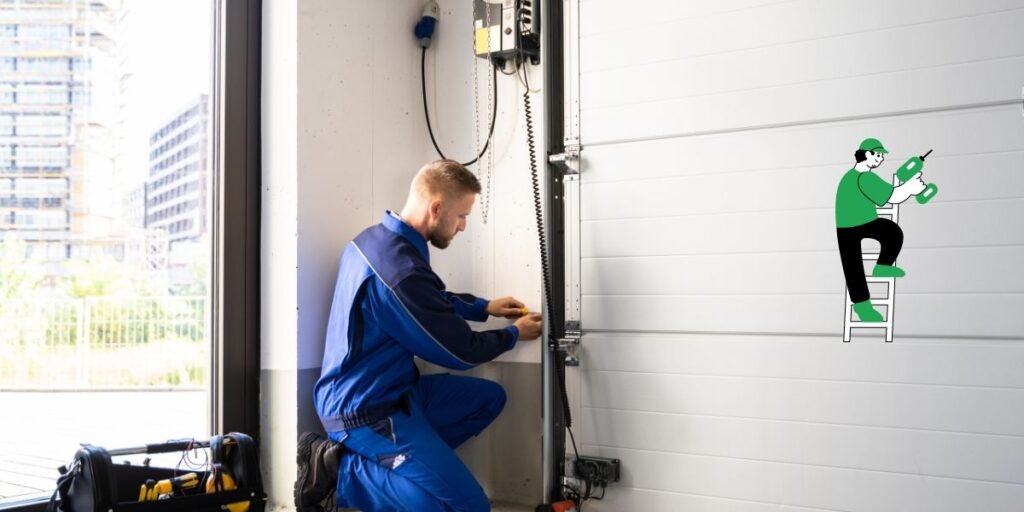
Does Cold Weather Affect My Garage Door?
Yes, cold weather can affect your garage door in several ways. Metal components may contract, causing misalignment or stiffness. Weatherstripping can freeze, reducing its effectiveness at sealing out drafts and moisture. Lubricants may thicken or harden, leading to increased friction and wear on moving parts.
batteries powering garage door openers may experience reduced performance in cold temperatures. It’s essential to perform regular maintenance and consider insulated doors or weatherproofing solutions to minimize the impact of cold weather on your garage door.
In cold weather, garage door openers may be affected by lower temperatures, leading to slower operation or malfunctions. It is important to ensure proper insulation and maintenance to prevent such issues from arising. Regularly checking and lubricating the garage door mechanism can help mitigate the impact of cold weather.
Weather fluctuations, particularly cold temperatures, can have varying effects on your garage door. Understanding how colder conditions impact your garage door operation can help you maintain its functionality during winter months.
How Cold Weather Impacts Garage Doors:
- Lubrication: Cold weather can cause lubricants in your garage door opener to thicken, affecting its smooth operation.
- Metal Components: Metal parts of the garage door may contract in the cold, leading to tension issues and potential malfunctions.
- Electrical System: Extremely low temperatures can impact the electrical components of the garage door opener, causing it to operate sluggishly or malfunction.
How To Address Cold Weather Issues:
- Use High-Quality Lubricant: Applying a high-quality lubricant specifically designed for cold temperatures can prevent stiffness in the garage door opener.
- Regular Maintenance: Ensure routine maintenance checks and adjustments are performed to prevent cold weather-related issues.
- Insulation: Installing insulation in your garage can help regulate the temperature and prevent cold air from affecting the garage door.
Considering Temperature Fluctuations:
- Temperature Variation: Be aware of sudden temperature changes as they can affect the functionality of your garage door.
- Monitor Weather Forecasts: Stay informed about upcoming weather conditions to anticipate any issues that may arise due to extreme cold spells.
Regular maintenance and awareness of how cold weather affects your garage door can help you address potential issues before they escalate, ensuring smooth operation throughout the winter season.

5 Reasons In My Garage Door Not Open In Cold Weather
In cold weather, garage door opener issues can arise due to lubricant thickening, sensors malfunctioning, motor strain, metal contraction, or battery power reduction. These factors collectively contribute to the inability of the garage door to open smoothly when temperatures drop, requiring timely maintenance to ensure proper functionality.
5 Reasons My Garage Door Doesn’t Open In Cold Weather
Winter can pose challenges for your garage door opener, leading to frustrating issues. Below are common reasons why your garage door may struggle to open in cold weather:
- Lubrication Issues: Lack of proper lubrication in the garage door mechanism can cause it to stiffen in cold temperatures.
- Freezing of Components: When temperatures drop, the metal components of the garage door opener may freeze, hindering its smooth operation.
- Battery Drain: Cold weather can impact the performance of your garage door opener’s battery, causing it to drain more quickly.
- Contracting of Metal: Metal parts of the garage door system may contract in cold weather, leading to alignment issues and difficulty in opening.
- Sensor Malfunction: Cold weather can affect the sensors of the garage door opener, causing them to misinterpret signals and prevent the door from opening smoothly.
Addressing these common issues proactively can help ensure that your garage door opener functions reliably during the colder months.
Why The Garage Door Won`t Close When It`s Cold And How To Fix It
In cold weather, garage doors may struggle to close due to the contraction of metal components. To fix this issue, lubricate the hinges, springs, and rollers to ensure smooth movement.
Experiencing trouble getting your garage door to close during chilly weather? Cold temperatures can indeed affect the performance of a garage door opener, causing it to malfunction. Don’t fret though, as there are several reasons why this may happen and simple solutions to get your garage door functioning smoothly again.
Read on to understand why the garage door won’t close when it’s cold and learn how to fix it.
Reasons Why The Garage Door Won’t Close In Cold Weather:
- Contracting metal components: As temperatures drop, the metal components of your garage door, such as the tracks and springs, can contract. This contraction can cause misalignment within the system, preventing the door from closing properly.
- Frozen garage door opener components: Extremely low temperatures can cause the lubricants in your garage door opener to thicken or freeze. This can affect its ability to function smoothly, resulting in the door not closing.
- Sensor blockage by ice or debris: Ice, snow, or debris such as leaves and dirt can block the sensors located at the base of the garage door. When the sensors are obstructed, the garage door opener perceives an obstacle and won’t close the door as a safety measure.
How To Fix The Issue:
- Check for misalignment and realign the door: Inspect the tracks and springs for any signs of misalignment. If you notice any gaps or unevenness, adjust them accordingly to ensure smooth movement of the door. Use a level to check if the tracks are properly aligned.
- Thaw frozen components: If you suspect your garage door opener components have frozen, use a hairdryer or heat gun to gently warm them up. Be cautious not to overheat the components, as this can cause damage. Once they are thawed, test the door to see if it closes properly.
- Clear the sensors: Remove any ice, snow, or debris that may be blocking the sensors at the bottom of your garage door. Ensure that they are clean and free from any obstructions. This will allow the door to close without encountering any perceived obstacles.
Remember to take necessary safety precautions while working on your garage door, such as disconnecting the power source and referring to the manufacturer’s instructions. If the issue persists or you are unsure about performing the fixes yourself, it is advisable to consult a professional garage door technician.
Don’t let cold weather hamper the functionality of your garage door opener. By understanding the reasons behind the problem and following the simple troubleshooting tips mentioned above, you can ensure that your garage door functions smoothly, even in chilly temperatures.
Stay warm and keep your garage door working optimally all year round.
Dealing With Cold Weather And Garage Door Openers:
When the temperature drops, operating a garage door opener can become a challenge. Here are some tips to help you successfully open your garage door in cold weather.
- Lubricate the moving parts: Apply a silicone-based lubricant to the garage door tracks, rollers, hinges, and springs. This will prevent the parts from sticking together due to cold temperatures and ensure smooth operation.
- Clear the ice and snow: Before attempting to open the garage door, make sure to clear any ice or snow that may have accumulated on the door or its surroundings. This will prevent obstructions that could hinder the door’s movement.
- Check the batteries: Cold weather can drain the power from your garage door opener’s batteries. Be sure to inspect and replace the batteries if necessary to ensure proper functioning in low temperatures.
Adjusting Sensitivity And Force Settings:
Garage door openers have sensitivity and force settings that may need to be adjusted in cold weather to compensate for changes in the door’s operation. Here’s how you can do it:
- Adjust the sensitivity: Lower the sensitivity setting on your garage door opener to prevent it from becoming overly sensitive to the cold, which could cause it to stop functioning properly.
- Modify the force setting: In extremely cold conditions, you may need to increase the force setting of the garage door opener to counteract the resistance caused by the cold and keep the door working smoothly.
Why Does My Garage Door Opener Not Work When It’s Cold?
Cold weather can cause garage door opener components to contract, leading to poor connection and functionality issues.
Can Cold Weather Affect Garage Door Motor?
Cold weather can affect garage door motors by causing them to operate more slowly or struggle to lift the door. It is important to keep the motor well-maintained and lubricated to help offset the effects of cold temperatures.
Why Is My Garage Door Struggling To Open?
Your garage door may struggle to open due to worn-out springs, misaligned tracks, or motor issues. Regular maintenance and lubrication can prevent these issues. If problems persist, consult a professional garage door technician for prompt assistance.
Why Is My Garage Door Remote Not Working In The Morning?
There could be interference in the morning affecting your garage door remote’s signal. Ensure there’s no electrical interference or signal obstruction. Also, check for dead batteries or a malfunctioning remote.
Conclusion
In colder climates, it is important to understand the potential impacts of cold weather on garage door openers. From increased strain on motor components to reduced battery life, cold temperatures can affect the functionality of a garage door opener. To ensure optimal performance, it is recommended to periodically check and maintain the opener during winter months.
By taking proactive measures, homeowners can minimize the risk of issues and ensure their garage door opener continues to operate smoothly even in chilly conditions.

Garage Door Technician

